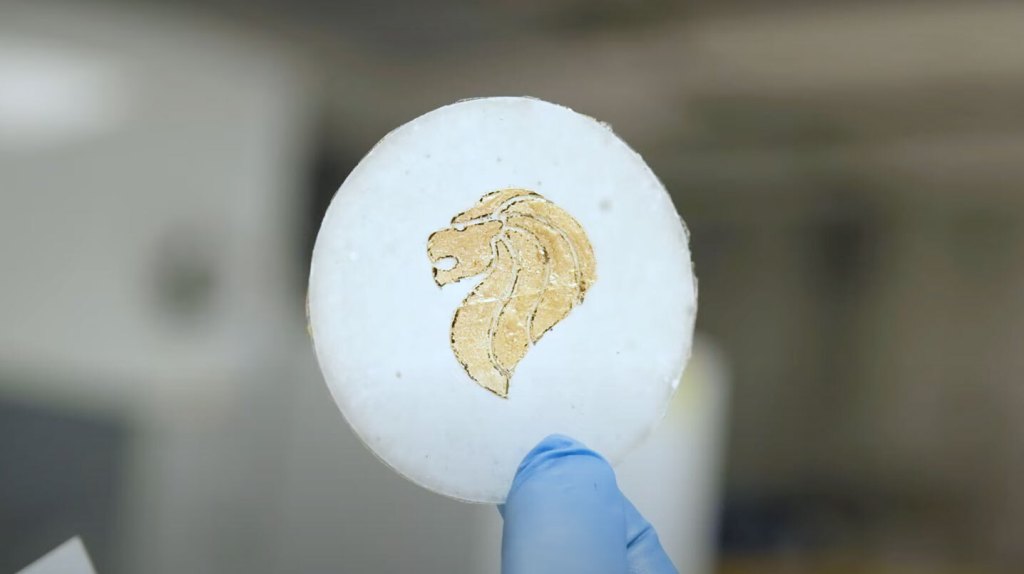Lithium-ion batteries have become the standard in the electrification revolution. In fact, they’ve become so unquestionably integral to the development of batteries that everyone from government to automakers to big oil is rushing to shore up access to the mineral.
The only problem is, lithium is expensive, time-consuming and labor-intensive to extract. And that extraction process takes a toll on the environment. The same goes for the other materials that go into a battery, like nickel, cobalt and graphite.
A handful of startups have emerged to tinker with different chemistries in an attempt to build batteries that are more efficient, lightweight and environmentally friendly. Usually they swap out some of the standard materials, but rarely do they forego relying on lithium altogether.
Enter Flint, a startup out of Singapore that says it has come up with a way to replace the lithium in a battery with paper.
“Paper batteries are very new to this world, and there are only a few institutions working on this technology right now,” Carlo Charles, co-founder at Flint, told TechCrunch. “We’re working on changing the materials, so instead of fusing lithium, nickel and cobalt, we’re using zinc, manganese and cellulose papers. With those three things we can change the way the battery can be used, but keep how the battery is made. So that’s the upper hand we have compared to other strategies and battery technologies out there.”
Flint, which participated in the TechCrunch Disrupt 2023 Startup Battlefield, only started producing its paper batteries in 2022, but the company already has a prototype. Initial tests have been promising, and now Flint wants to find partners with which to test its paper batteries in consumer products.
Sounds good, but how does it work?
First you need to understand a little about normal lithium-ion batteries. They are made up of four components: the anode (the negative electrode), the cathode (the positive electrode), the separator and the electrolyte. The electrolyte, which is a liquid material, sits in the middle and acts as a courier, moving ions between the electrodes when charging and discharging.
Flint’s battery only has three components: a zinc-based anode, a manganese-based cathode and the paper separator. Flint coats its cellulose paper, anode and cathode in hydrogel before baking it in a vacuum oven — in effect creating a hydrogel-reinforced cellulose paper. Hydrogel is a “smart” material that can change its structure in response to its environment, like temperature, pH levels, salt or water. It’s also Flint’s secret sauce because it enables the electron transfer between the anode and cathode without the need for both the separator and electrolyte.
And apparently it works — well enough that, while the chemical makeup of the battery is changed, the structure and manufacturing process of the battery remains the same. In other words, Flint’s batteries can, one day, be used interchangeably with lithium batteries today, says Charles.
“We can just use the existing technologies that are out there already, put in our recipe, and can easily have a production line with paper batteries,” said the co-founder, noting that other solutions like hydrogen or sodium batteries require changing the way a product is made. “What’s great about us is we’re making it so easy for manufacturers and suppliers to just swap old lithium batteries with our paper batteries.”
Charles said Flint chose zinc and manganese over lithium, cobalt and nickel because the former two are more abundant materials, which is important when discussing sustainability in the battery industry. He said they’re also safer materials than the ones being used in today’s batteries, which are highly reactive. One need look no further than the many battery fires that have been sparked from lithium batteries to see that safer critical materials are an attractive prospect.
“You can literally cut our battery while it’s in operation, and it will still continue working without overheating or exploding like what we expect lithium batteries to do,” said Charles.
The materials used in Flint’s paper batteries also allow them to work in a temperature range of negative 15 degrees Celsius to 80 degrees Celsius, opening a larger range of product possibilities and providing an example of how efficiency won’t degrade over time. The materials in today’s batteries, he said, can only work from 15 degrees Celsius to 35 degrees Celsius.
“Lithium batteries are really good for weight, capacity and volume, but they’re not as efficient for cost and safety,” said Charles.
Flint’s paper batteries move the needle on cost and safety, and they already match the standards of lithium batteries when it comes to voltage and current. But the paper batteries have a long way to go to match the capacity of lithium batteries. Specifically, Flint needs to increase the volumetric density of its batteries.
“So if you roll this paper battery up into a AA battery, for example, we can only provide around 60% or 70% of a lithium battery’s energy density,” said Charles. “So we are focusing on two things. Number one is increasing this number to a higher standard. And number two is seeing if there are any applications that can be used today with these numbers, where energy density is not so important.”
Flint also needs to improve the lifecycle of its batteries before they can go to market. Charles says a lithium battery that has been tested over 2,000 life cycles would see its health depreciate to 60%. Flint only has the resources to test for 1,000 life cycles, but over those life cycles, the battery’s health goes down to 70%.
Charles noted that he’s proud of what his small team of five staffers and four advisors has been able to accomplish, given Flint’s limited resources. The startup bootstrapped $50,000 and the Singapore government gave it another $100,000. With that, Flint has been able to MacGyver a cleanroom together to make batteries and test them.
Batteries should be made in rooms that are so clean and dry that nary a speck of dust nor a sprinkle of moisture can be found. The conditions have to be precise, and the machinery involved is usually automated. Charles jokingly described the “very open environment” in which Flint produces its prototypes today as “exactly where you should not be making batteries.”
“I went to a battery plant recently and they have this big slurry machine where you put in the powders to turn them into a liquid form, and they run that huge machine, which is almost half the size of my room, and they run it 12 hours just to make one slurry component,” said Charles. “Do you know what we do to make our batteries? We use an egg beater, and we beat it for three hours with our hands. And our numbers are decent even with all that. Imagine if we had the resources and facilities.”
Moving from prototype to product

Flint is in the last leg of its journey to optimize the battery’s chemistry. From there, the company will soon be ready to go into manufacturing and production, and try to get other companies to use Flint paper batteries in their products.
To get to a point of scale initially, Charles said Flint will need to focus on two out of the following three benchmarks: weight, capacity and volume. If the startup sacrifices getting the weight right to focus on lowering volume and increasing capacity, it can try to go to market with energy storage systems (ESS). Flint is already working with one of Singapore’s biggest ESS providers, according to Charles.
The company could also sacrifice capacity and focus more on building batteries with less weight and volume, which would present the ideal application for remote sensors and wearables.
The long-term vision would be to figure out how to sacrifice volume, increase capacity and lower weight, which would make the batteries more suitable for electric vehicles.
“We’ve been in talks with Airbus, which is trying to electrify their planes for the future,” said Charles. “Long term, we’d like to be able to help them and make batteries with custom shaping, since they’re paper and flexible. They could be the shape of a wing or of the entire curved body of the plane.”































Comment